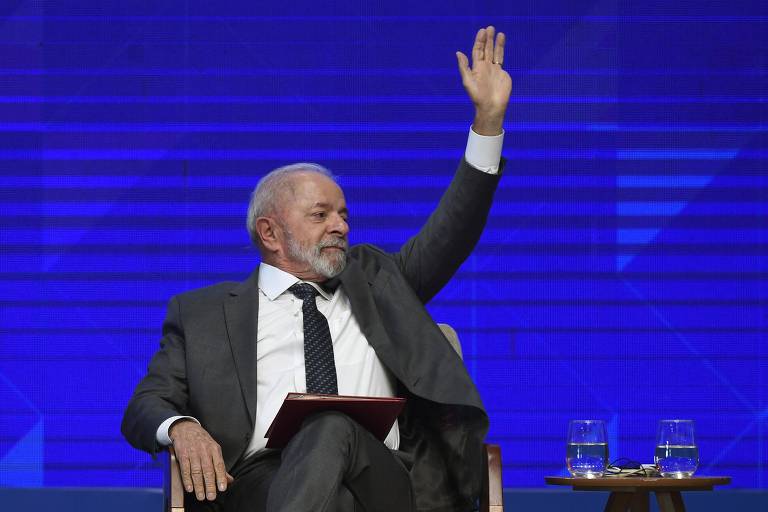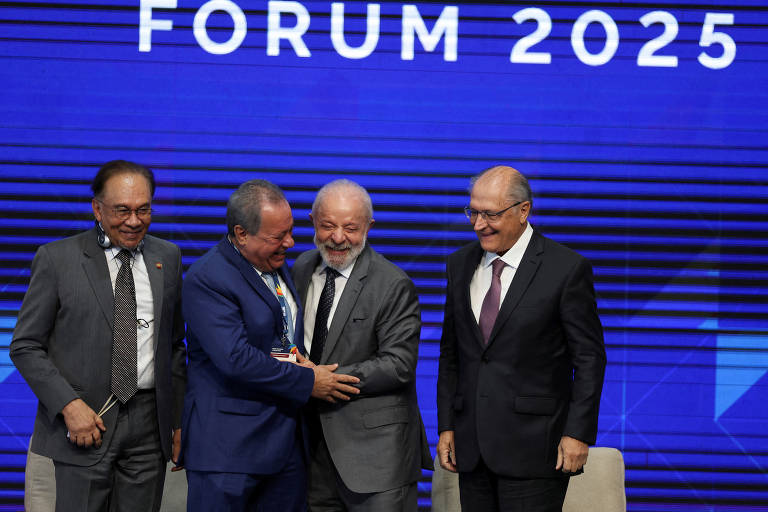BRICS overcomes obstacles over Iran and UN and becomes a relief for Lula in the face of a depleted summit

BRICS negotiators concluded this Saturday (5) a joint statement, to be released by the bloc's leaders at the end of the event, and overcame impasses that had been hampering negotiations on issues such as conflicts in the Middle East and reform of the United Nations .
The two most sensitive issues were overcome, preventing the summit from ending without a statement and highlighting internal divisions within the group. The meeting, which begins this Sunday (6), is already suffering from the absence of relevant leaders, which contributes to reducing the political weight of the meeting.

After days of negotiations, two points remained open on Saturday morning. They were concluded in a final round of talks.
Iran , which does not even recognize Israel's right to exist , has been opposed to accepting in the joint declaration mentions of the two-state solution — one Israeli and one Palestinian — as a formula for overcoming theMiddle East conflict. For Tehran, the inclusion of this reference would mean implicit recognition of the State of Israel , something that the ayatollahs' regime has rejected since the 1979 Islamic revolution.
According to people familiar with the negotiations, the Iranian delegation ended up isolated in its position . First, because it had already accepted documents in other international forums and meetings that mentioned the two-state solution, such as in the BRICS declaration last year and in a statement by the Organization of Islamic Cooperation.
Second, the two-state solution is endorsed by all other BRICS members, including the newly incorporated Arab nations such as Egypt and the United Arab Emirates . This is, in the words of one negotiator, a movement widely embraced by the Global South (a group of emerging countries) and there was no way to back down just to accommodate Iran's wishes.
Thus, according to people with knowledge of the conversations, the document to be released at the summit this Sunday will have at least one reference to the two-state solution as a way to overcome the Israeli-Palestinian conflict .
In the case of the reform of the UN Security Council, which had been pitting Brazil against Ethiopia and Egypt, a language that was considered a victory by the Itamaraty was adopted. The main point for the Lula (PT) government was to maintain in the document an explicit reference to Brazil's aspiration to one day occupy a permanent seat on the board .
The negotiated text should include recognition from China and Russia, two permanent members of the main UN body, that Brazil and India should play a more active role in global issues and in the United Nations, including in the Security Council.
Similar support from the BRICS forSouth Africa 's ambition, which was included in a 2023 document, was withdrawn to reduce friction with Egypt and Ethiopia. These African countries have their own joint position on what a Security Council reform should look like and rejected the idea of a country from the continent receiving preferential treatment.
The difficulties in finalizing a joint declaration highlight the costs of expanding BRICS. While the bloc has gained weight and ambition to become a new global power center, it also faces greater obstacles in reaching consensus. Within the Ministry of Foreign Affairs itself, there is an assessment that the expansion of BRICS has brought complexities, particularly due to the large number of new members from the Middle East, a region with numerous particularities and crises.
In the end, the agreement to publish a joint document is a relief for the Lula government, which is already dealing with a summit emptied by the absence of important BRICS leaders.
In addition to China's Xi Jinping, whose absence is especially felt by the Planalto Palace, the leaders of Russia, Vladimir Putin (target of an arrest warrant from the International Criminal Court); Egypt, General Abdel Fattah al-Sisi, who decided to remain in his country to follow new ceasefire negotiations in Gaza; and Iran, Masoud Pezeshkian, recently elected president of a nation bombed by Israel and the United States, are also expected to miss the summit.
Until 2023, BRICS was formed by Brazil, Russia, India, China and South Africa. That year, Egypt, the United Arab Emirates, Ethiopia, Indonesia, Iran and Saudi Arabia joined the group. There is also a list of partner nations: Belarus, Bolivia, Kazakhstan, Cuba, Malaysia, Nigeria, Thailand, Uganda, Uzbekistan and Vietnam.
The enlarged bloc is also trying to fill the vacuum left by the US withdrawal from multilateral forums. While the Trump administration has withdrawn Washington from the World Health Organization, weakened the World Trade Organization with its tariff war and cut billions of dollars in funding for disease prevention in Africa, the BRICS will release a document on climate finance and commit to combating so-called socially determined diseases, such as tuberculosis and malaria.
It is no coincidence that the Director-General of the WHO, Tedros Adhanom; the Director of the WTO, Ngozi Okonjo-Iweala; and the Secretary-General of the UN, António Guterres, will be present in Rio.
One of Brazil's goals is to announce a financial collaboration initiative between the BRICS countries and the WHO, which lost 15% of its budget after the US left. The idea would be to have something similar to the commitments made to the Global Alliance against Poverty.
In a separate statement on artificial intelligence, there will also be criticism of the Trump administration's stance, which has been threatening — and in fact retaliating — against countries that adopt regulations or taxes against big tech.
Brazil is leading the charge for fair compensation for the use of data to train AI models. Big tech companies argue that paying royalties would stifle innovation.
The Brazilian government argues that this speech repeats, now in reverse, the rhetoric of rich countries in the past, when they defended the protection of intellectual property of medicines to prevent the breaking of patents by emerging nations.
uol






